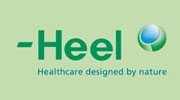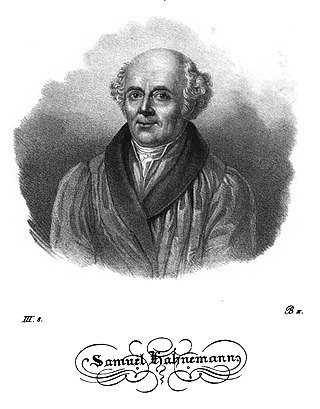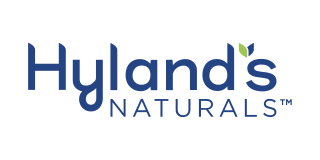
Heel is a developer, producer and distributor of homeopathic preparations. It was founded in 1936 by Hans-Heinrich Reckeweg. Heel has offices in 40 countries worldwide including the United States where it is located in Albuquerque, NM.

Heel is a developer, producer and distributor of homeopathic preparations. It was founded in 1936 by Hans-Heinrich Reckeweg. Heel has offices in 40 countries worldwide including the United States where it is located in Albuquerque, NM.
Dr. Reckeweg was a German physician, who received his medical degree in Berlin, who practiced homeopathy. In 1936, Biologische Heilmittel Heel GmbH was founded in Berlin to develop and market his preparations. In 1953 Reckweg moved the company to its present location in Baden-Baden. Between the companies founding year 1936 and 1979 (when Reckeweg relocated to Albuquerque) he developed over 1,000 different homeopathic preparations available through Heel GmbH. When Reckeweg relocated to Albuquerque he created Biological Homeopathic Industries (BHI) and began manufacturing combination remedies in tablet form. In 1997, the Albuquerque company was renamed Heel USA Inc. In 2014, Heel USA became independent from the German Heel organization and operates under the name MediNatura Inc, which now manufactures and distributes BHI products and is the only legal importer of Heel products in the USA.
In 1984 BHI received letters and warnings from the Food and Drug Administration that it was in violation of FDA regulations in regards to marketing of homeopathic remedies. [1] BHI was given multiple FDA citations and fines during the 1980s and early 1990s for violation of the Compliance Policy Guidelines labelling guidelines established by the FDA in 1988. These were corrected and have not recurred, [2] [3] though in August 2013 the company again agreed to dial down its health claims tied to its over-the-counter remedies and pay a $1 million class settlement to resolve accusations that it exaggerated the products’ effectiveness to consumers. [4]
In 2012, Heel was criticized for funding a German blogger who smears scientists critical of homeopathy. [5] [6]

Homeopathy or homoeopathy is a pseudoscientific system of alternative medicine. It was conceived in 1796 by the German physician Samuel Hahnemann. Its practitioners, called homeopaths or homeopathic physicians, believe that a substance that causes symptoms of a disease in healthy people can cure similar symptoms in sick people; this doctrine is called similia similibus curentur, or "like cures like". Homeopathic preparations are termed remedies and are made using homeopathic dilution. In this process, the selected substance is repeatedly diluted until the final product is chemically indistinguishable from the diluent. Often not even a single molecule of the original substance can be expected to remain in the product. Between each dilution homeopaths may hit and/or shake the product, claiming this makes the diluent "remember" the original substance after its removal. Practitioners claim that such preparations, upon oral intake, can treat or cure disease.

DEA Deutsche Erdoel AG was an international oil and gas company headquartered in Hamburg, Germany. It was a subsidiary of L1 Energy. In 2018, DEA owned stakes in oil and gas licenses in various countries and operated natural gas underground storage facilities in Germany. DEA is a derivation from Deutsche Erdöl-Aktiengesellschaft, the original name of the company. On 1 May 2019, DEA merged with Wintershall to form Wintershall Dea.
Telefunken was a German radio and television producer, founded in Berlin in 1903 as a joint venture between Siemens & Halske and the Allgemeine Elektrizitäts-Gesellschaft (AEG) . Prior to World War I the company set up the first world wide network of communications and was the first in the world to sell electronic televisions with cathode ray tubes, in Germany in 1934.

The United States Federal Food, Drug, and Cosmetic Act is a set of laws passed by the United States Congress in 1938 giving authority to the U.S. Food and Drug Administration (FDA) to oversee the safety of food, drugs, medical devices, and cosmetics. The FDA's principal representative with members of congress during its drafting was Charles W. Crawford. A principal author of this law was Royal S. Copeland, a three-term U.S. senator from New York. In 1968, the Electronic Product Radiation Control provisions were added to the FD&C. Also in that year the FDA formed the Drug Efficacy Study Implementation (DESI) to incorporate into FD&C regulations the recommendations from a National Academy of Sciences investigation of effectiveness of previously marketed drugs. The act has been amended many times, most recently to add requirements about bioterrorism preparations.

Oscillococcinum is a homeopathic preparation marketed to relieve flu-like symptoms, although it does not provide any benefit beyond that of a placebo.

DB Regio AG is a subsidiary of Deutsche Bahn which operates regional and commuter train services in Germany. DB Regio AG, headquartered in Frankfurt am Main. It is a 100% subsidiary of the Deutsche Bahn Group and there part of the DB Regio business segment, which also includes DB Regionnetz Verkehrs GmbH and other independent subsidiaries.
Zicam is a branded series of products marketed for cold and allergy relief whose original formulations included the element zinc. The Zicam name is derived from a portmanteau of the words "zinc" and "ICAM-1". It is labelled as an "unapproved homeopathic" product and as such has no evidence of effectiveness.

Neal's Yard Remedies is a UK-based retail and multi-level marketing company selling cosmetics, skin care products, and essential oils. The direct selling arm is branded NYR Organics. The company was founded in 1981.

Knorr-Bremse AG is a German manufacturer of braking systems for rail and commercial vehicles that has operated in the field for over 110 years. Other products in Group's portfolio include intelligent door systems, control components, air conditioning systems for rail vehicles, torsional vibration dampers, and transmission control systems for commercial vehicles. In 2022, the Group's workforce of over 31,000 achieved worldwide sales of EUR 7.15 billion.

Homeopathy is fairly common in some countries while being uncommon in others. In some countries, there are no specific legal regulations concerning the use of homeopathy, while in others, licenses or degrees in conventional medicine from accredited universities are required.
Nelsons is a British alternative medicine company, with subsidiaries in Germany and the US. The head office and manufacturing facilities are located in Wimbledon, London, with a retail pharmacy in Central London. Spatone is manufactured at the Trefriw Wells Spa in Snowdonia, Wales.
Temmler Werke GmbH was founded in Detmold in 1917 by Hermann Temmler. The Temmler Group is a German pharmaceutical company, which focuses on the production, sale and contract production of pharmaceutical products. In 2012, the Temmler Group was taken over by the Aenova Group and with its seven production sites is one of the largest European pharmaceutical contract manufacturers.
Emcure Pharmaceuticals Limited is an Indian multinational pharmaceutical company headquartered in Pune. Emcure's product portfolio includes tablets, capsules and injectables. The company is a major producer of HIV antivirals, as well as gynaecology and blood therapeutic drugs.
Pharmaceutical fraud involves activities that result in false claims to insurers or programs such as Medicare in the United States or equivalent state programs for financial gain to a pharmaceutical company. There are several different schemes used to defraud the health care system which are particular to the pharmaceutical industry. These include: Good Manufacturing Practice (GMP) Violations, Off Label Marketing, Best Price Fraud, CME Fraud, Medicaid Price Reporting, and Manufactured Compound Drugs. Examples of fraud cases include the GlaxoSmithKline $3 billion settlement, Pfizer $2.3 billion settlement, and Merck $650 million settlement. Damages from fraud can be recovered by use of the False Claims Act, most commonly under the qui tam provisions which rewards an individual for being a "whistleblower", or relator (law).

August Faller GmbH & Co. KG is a German manufacturer and system supplier of pharmaceutical secondary packaging headquartered in Waldkirch, in Baden-Württemberg. With 1147 employees in 6 different locations across Europe, the company produces 2.1 billion folding cartons, 1.6 billion leaflets and 1 billion adhesive labels per year. August Faller GmbH & CO. KG is one of the market leading companies in the field of pharmaceutical secondary packaging in the German-Speaking region.
Berlin Heart GmbH is a German company that develops, produces and markets ventricular assist devices (VADs). The devices mechanically support the hearts of patients with end-stage heart failure. Berlin Heart's products include the implantable INCOR VAD and the paracorporeal EXCOR VAD. To date, Berlin Heart produces the only device of its kind available for babies and children with severe heart failure.

Hyland's is a brand of homeopathic products sold in the United States and Canada. Hyland's operates in the United States as Hyland's Inc and in Canada as Hyland's Homeopathic Canada Inc and is a division of Standard Homeopathic Co..
The distribution of medications has special drug safety and security considerations. Some drugs require cold chain management in their distribution.

Klosterfrau Melissengeist, also referred to as Klostermelissen or Melissengeist, is a German variation of Carmelite Water currently sold by Klosterfrau Healthcare Group as an alternative remedy for the improvement of general health and wellbeing. Melissengeist derives its name from one of its principal ingredients, Melissa officinalis L., commonly known as lemon balm. It also includes the essential oils of thirteen medicinal plants such as gentian, cardamom, cinnamon, and ginger, which are all mixed in a 79% ethanol solution. Since its origin in the 1800s in Germany, it has been used as an alternative medicine to treat an array of health issues like colds or gastrointestinal issues.
The infinitesimally low concentration of homeopathic preparations, which often lack even a single molecule of the diluted substance, has been the basis of questions about the effects of the preparations since the 19th century. Modern advocates of homeopathy have proposed a concept of "water memory", according to which water "remembers" the substances mixed in it, and transmits the effect of those substances when consumed. This concept is inconsistent with the current understanding of matter, and water memory has never been demonstrated to exist, in terms of any detectable effect, biological or otherwise.